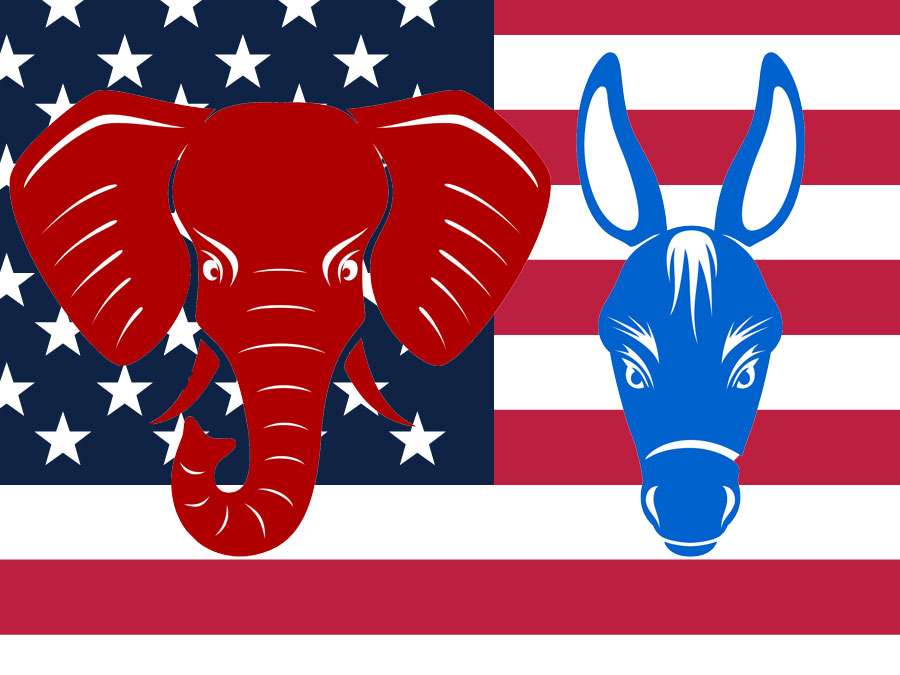Yesterday, I watched former President Obama’s speech to the Democratic National Convention. And I found myself bemused in the early goings. President Obama waxed eloquently about the “North Star that would guide future generations…to better realise our highest ideals” which was “embedded” in our great Constitution. Yes, admittedly, that holy document didn’t stop power from being vested in wealthy land-owning whites. But don’t worry, the former president assured us, we fixed that part. Now, a mere 230-odd years after its ratification, we’ve nearly sorted everything out. Just a few more t’s to cross and a few more i’s to dot.

Now, be not deceived by this critique. I consider President Obama a person of decency and dignity, not to mention a diverse vocabulary, all qualities which have been conspicuous in their recent absence. That said, his speech made clear his belief that the answer to our problems lies somewhere within that hallowed Constitution, somewhere within our political framework, somewhere within the American project. Ironically, this is a worldview shared by Democrats and Republicans alike, resting on the notion that the birth of America was the birth of a new world. Politicians of both major flavours put their faith in this ‘novus ordo seculorum‘ (‘a new order of the ages’), served up by America’s founders with a generous helping of Enlightenment hubris.
This is more or less the kind of buy-in that I expect from those ensconced in U.S. politics. But Christians are supposed to believe something different: that the world changed, not through a document signed by neo-aristocrats in a stuffy Philadelphia meeting room, but in the person, death and resurrection of Jesus of Nazareth. And we’re supposed to inhabit this new world through our discipleship to this Jesus. Yet it strikes me that a great many American Christians have traded in this raison d’être for a paltry civic religion — in practice at least, if not in principle.
The phenomenon of the Christian Right has been well documented. What began as a marriage of convenience, cozying up to Republican power brokers to agitate for a few key moral concerns, ended with Christians whole-heartedly adopting so much of the party platform as to be indistinguishable from any other Republican — indeed, even to set the standard by which a ‘good Republican’ is measured. A major thrust among those of us you might call ‘left-leaning’ Christians is repudiating so much of the right-wing politics of our parents. Our response? So often, it’s to ally ourselves with the Democratic Party, such is our lack of imagination and our inability to see beyond an either-or, two-party civic system. So, when the Democrats tout their ‘faith credentials’ for us, or convene a discussion with faith leaders, we come dutifully along, just happy to be invited to a seat at the table. We’re content to think that, through them, we might make society a little more just, a little more equitable and a little less racist and sexist. Maybe.
Consider the words of theologians Stanley Hauerwas and William Willimon:
“…[W]e can see little difference between the originating positions of liberals and conservatives. Both assume that the main political significance of the church lies in assisting the secular state in its presumption to make a better world for its citizens.”
Resident Aliens: Life in the Christian Colony
And what fruit have we wrought? Haven’t we seen enough in recent years to convince us that the American project has failed in its aim to make people ‘better’? After a quarter of a century, can anyone really hope that, with the right set of people in charge, such ‘betterness’ will reveal itself? Or for that matter, in the 17 centuries since Constantine, has any lasting good emerged from our (Christians’) flirtations with, or outright acquiescence to, political influence?
In the New Testament, what we don’t see is Jesus’ disciples actively cultivating alliances with people of influence. Instead, we see them rejoicing at the beatings received from people of influence (Acts 5:40-41; 1 Pet. 4:12-16).
That doesn’t mean they were apolitical. In fact, they were overtly political, just not in any conventional sense. They insisted that the conventional order of the world had been upended and subverted by Jesus himself and they formed communities to serve as outposts of the new world, exploring and re-exploring just how these communities should look and behave.
And aren’t we meant for communities like this, where Jesus is worshipped and lives are altered by the gospel? Yes, as Hauerwas and Willimon remind us, our mission isn’t to leverage political influence for favourable change or to underwrite the manoeuvrings of the state or even to serve as the conscience of on or the other party, but to follow Jesus in our like-minded communities. That’s the only party worth having. That’s the way we demonstrate truth to the world — and we shouldn’t expect the world to understand or respect us for it.
Even we struggle to understand how people and societies can change without conventional political force, which suggests that we’ve become excellent citizens, but rather disconnected Christians. If that’s the case, then it’s time to prioritise being better disciples than Republicans or Democrats or Americans.
image sources
- obama-speech: Obama’s DNC Speech 2020, from The New York Times
- Republican Democrat: Britannica.com: ’12 Quotes from U.S. Presidential Debates: A Quiz’


Leave a Reply